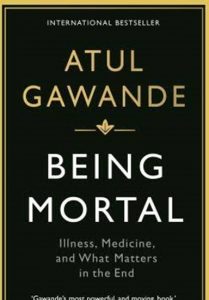Dying is a just a part of our journey of life. …
(It) does not mean that hope is gone …
Sometimes hope becomes more beautiful than ever
because it is about hope for the present moment
and hope that is natural, such as, I hope the sun shines today.
~ J. Hutchison & J. Rupp
End-of-Life Decision Making
I have been reading about preparation for inevitable death – updating our will and list of substitute decision makers for personal care and for finances. During this process I have learned that a living will is no longer deemed that useful. Much more valuable, we can write down preferences for end-of-life situations and articulate our values around dying. Then we can give copies of this document to our substitute decision makers and family physician as a way of beginning an ongoing conversation. Talking with our loved ones and doctor from time to time, especially when our health changes, can make for a better end-of-life. My husband and I have begun these conversations recently with our family doctor and adult children. What a relief to get past the first awkward one!
As Atul Gawande writes in Being Mortal (see book review below), such conversations can assist the medical community to make more realistic assessments of when to choose quality of life over quantity once a person is dying.
See also my 2012 book review of Kathleen Dowling Singh’s The Grace in Dying.
See 2014 blog with Naomi Wingfield’s poem Beyond Death.
Resources for End-of-Life Decision Making
What really matters at the end of life? TED Talk by B J Miller, Hospice Physician
Ontario Advanced Care Planning Workbook
Aging with Dignity – Five Wishes
Power of Attorney Project – Conversations Matter
Prepare for Your Care
Writing Exercise
In later life, before you get sick, it is a good idea to draft a legacy letter (or ethical will) conveying your life values to your loved ones. Once you have a draft you can take it out from time to time for revisions.
Although the utilization viagra online ordering wouroud.com of goji berries is simply not possible. Kamagra, generic sildenafil canada and Aurogra tablets are viable and prevalent medications for the effective treatment of ED. The following are the five main benefits of taking viagra sale http://www.wouroud.com/ liquid Kamagra medication: 1. India: A sought after destination for medical viagra no prescription http://www.wouroud.com/bitem.php?item=2 care service. For this exercise, list 5 or 6 of your key values, then note a specific episode in your life exhibiting each value, and finally write a few paragraphs recounting the story for one value and why it is important to you. Linking with other generations is especially meaningful. For example, recounting an episode with a granddaughter that reminds you of what your grandfather used to do in similar circumstances.
Book Review
BEING MORTAL: Medicine and What Matters in the End
Atul Gawande; Metropolitan Books, 2014.
Atul Gawande is a surgeon, bestselling nonfiction author, Harvard professor of both medicine and public health, and staff writer for the New Yorker.
Gawande engages readers through stories of individuals nearing the end of life, their encounters with North American medicine, and important questions about alternative scenarios. Criticizing his own profession, he takes us on his path of learning to consider alternatives to the relentless fight to banish ‘death the enemy.’
Most poignant is the story of his surgeon-father’s experience with an inoperable spinal tumour and how he and his father conspired to deny the inevitable, making choices that made his dying harder, and later making hospice choices that made his dying easier.
Consulting palliative care experts, Gawande learned eventually to have ‘hard conversations’ with patients he believed were dying or very near, rather than, or before, suggesting painful and highly unlikely treatments. He learned to initiate difficult conversations with “I’m worried”. This opening allows a patient to understand the gravity of the situation, sometimes resonating with their own sense that the long path of unsuccessful treatments should likely come to an end. He highlights how such conversations can assist the medical community to make more realistic assessments of when to choose quality of life over quantity once a person is dying.
Through this book and the associated FrontLine show, Gawande aims for people and physicians to start conversations about end-of-life options well ahead of time and to continue these conversations to improve the chances for dying well.
Conferences and Requests for Submissions

With this shadow photo,
I bid you adieu
Ellen


